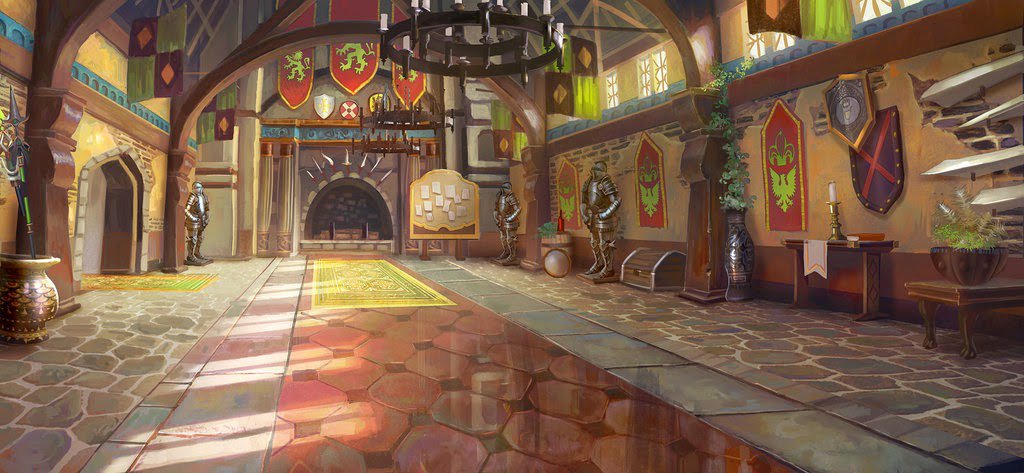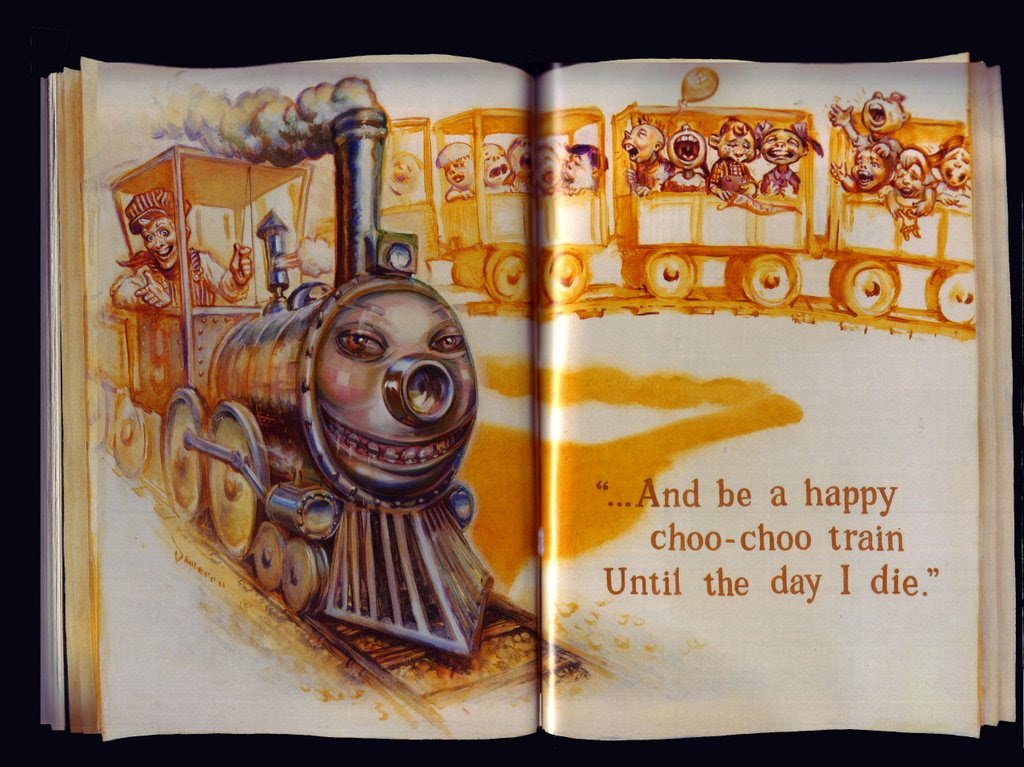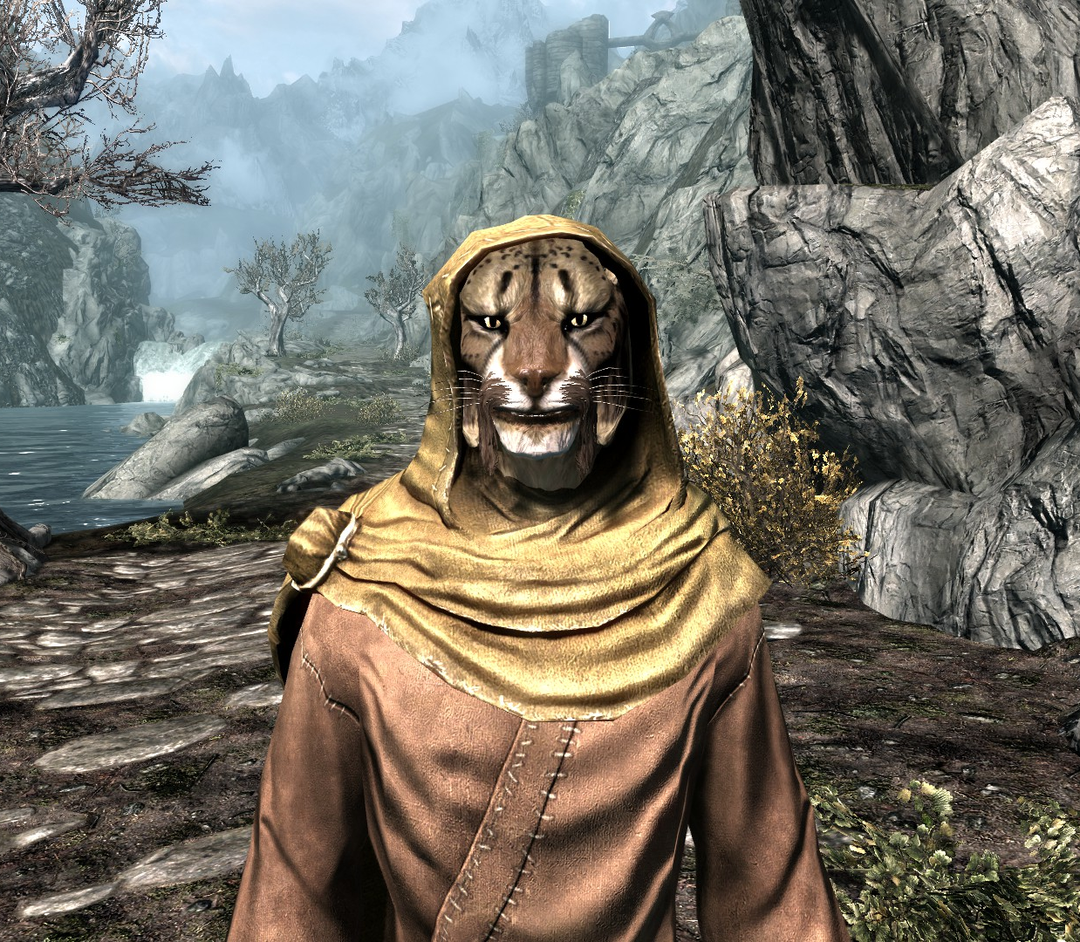Spinning an entire world out of nothing and populating it with a myriad of interesting denizens may seem like a daunting challenge to any DM. However, like most things, writing becomes easier if you break it down into manageable chunks. When you set out to write a plot for your game I find it helpful to pick a setting you (and your player base) think is interesting. It could be anything from a traditional Tolkien-style high fantasy to a wild west gothic wasteland to even a future-based setting, set around exploring future galaxies. There's enough RPG systems out there for any particular mood your in, if you look around: anything goes.
How do you do this right? How do you make a story that your players will be attracted to, wanting to immerse themselves entirely into the role of their choosing? As the Dungeon Master (or Storyteller, or Game Master... there's a dozen different names), it falls onto you to play the role of the computer, generating interest and keeping it there. It certainly is one of the most rewarding experiences in gaming, but it does come with the need to prepare and create before hand. How do you build a world that comes alive for your particular players?
Do your homework
I know one of the foremost tips on writing anything is "write what you know." If you're a history buff, you'll be able to craft more deep and memorable historical campaigns. If you've got a Robert Heinlein tattoo and have read Dune forwards and backwards then you can probably write a hell of a sci-fi plot. I like to write modern day plots mixed with fantasy, like the Harry Potter universe or the Dresden files. I feel comfortable working with modern day technology and settings. If I had paid more attention in history class, I might be better with historical settings, but I've always been drawn to advanced technology: nothing makes me more excited than having detectives with robot arms fighting vampire gangsters on top of a speeding subway car. It's all down to personal preference. If you want to run a game set in a Middle East influenced world then you should do your best to learn about it. You'll be able to craft a great world if you have a deep body of knowledge to draw on. The players shouldn't ever feel like they are in a two dimensional, slightly racist caricature of a real-world culture.
Get the right rules
As I said before, it's helpful to have a system that supports your plot. Dungeons and Dragons is the archetypal high fantasy system, but it is by no means the end-all be-all for swords and sorcery play. There are a lot of derivative d20 based systems or something a little more rules-lite like Dungeon World if you want to go clobber some orcs. Shadowrun is an amazing near-future/high fantasy system where wizards rub shoulders with cyber-hackers and psychic mediums. Deadlands: Reloaded looks like an neat Weird Wild West system though I haven't had the chance to try it myself. The World of Darkness system has a LOT of material if you are more inclined to stalk the night as one of a number of nasty boogeymen, from vampires and werewolves to Van Helsing-style monster hunters. While I personally love GURPS, since it is a system that can be adapted for literally any flavor or setting, you might want something a little more nuanced and specific to narrow things down with. If you are feeling ambitious you can try to craft some rules and splice them into an existing system, but that is a discussion for another day. Do some research into alternative systems. You might just find some new gem you weren't familiar with yesterday.
Drama!
So you know what your setting and system is. The next step is figuring out the real meat of the problem: the conflict. All the best books, movies, and television shows you've enjoyed have struggles, and a game also thrives on its ability to create an engaging conflict. Usually the opposition takes the form of a person or group of persons up to something despicable: the lich lord trying to wipe out all life on the planet, the shadowy board of a greedy corporation, the corrupt sheriff trying to take over the town. There may also be something that is less simple to fight, like an erupting volcano that will blacken the skies and start a new ice age... or a crashing meteor... or the death of a prominent god.... the list can go on and on. In general, I would make the conflict based around a slightly more punchable obstacle than something as catastrophic as global warming. You want something that the players feel is achievable, something tangible that they can work towards, however slim the chance of victory.

The enemies should be punchable, but they might punch back.
Inspiration
Sometimes the starting point for a plot can be as simple as a mental image or a silly question. I have a plot percolating in the back of my head that started with the question "What is the challenge rating of a mind flayer with a shotgun?"; normally, those two things would never go together, but whatever inspires you should be explored, no matter how silly it is. Fundamentally, the concept of magic is silly. Waving your hands and make-believe becomes real? Dumb, it's only our suspension of disbelief that changes dumb ideas into things we are happy to not only enjoy, but perpetuate! Don't feel silly if you think you want to make a plot based around the Smurfs, Just be sure to make it interesting for the rest of the players.
Narrative Coherence
The nebulous idea of the conflict of your plot needs support. I feel that giving your players four to six subplots that all dovetail with the main concepts of the central plot are what you need to make your narrative feel interwoven. If you have a dragon that's gonna torch a whole lot of shit as your main threat then you could support it with a cult that worships the dragon, a band of mercenaries out to kill the dragon that will fail and piss it off, the witch that loves the dragon and wants to protect it, a rival dragon vying for the same territory, and the king that sends passels of young people as sacrifices to the dragon. I just came up with all that off the top of my head. Is it good? Maybe. Probably not. Why would a witch love a dragon? Do you want to find out? That's plot that you get to dole out to your players as they investigate.
Plot Hook
Getting your players drawn into the story is called a plot hook. It may be an event that they stumble upon, whispers that catch their interest, or something more straightforward like a note tied to a brick thrown through the window. There's two broad archetypes of hooks you can use:
- Externally motivated, like a call to arms where the characters are summoned to embark on a quest and are obligated to complete it.
- Internally motivated, like a mystery that the players themselves want to solve, maybe they stumble upon a secret plot or a crime.
Additionally, you can draw inspiration for plot hooks from your player's back stories. (You did make them write a backstory, didn't you?) If you insert some facet of the character's back story into your plot they will be massively more inclined to follow it through. The wrong way to do this is to have someone kill the character's relatives and loved ones. The right way to do it would be to kidnap, maim, or otherwise threaten the character's relatives and loved ones. Violence is cheap drama, but the threat of violence is much more engaging. There's lots of other ways to spin a backstory into a plot hook, like a friend or relative coming to the character for help, the homestead being sold, a cherished item getting stolen. Plot hooks are just conflict that comes straight to the player's doorstep. It's better if the hook has the character's name on it.

Guild halls are a traditional way of handing out plot hooks and rewarding the players with loot.
Flexible Set Pieces
As you draw out your map of the world and you've populated it with the big players, it behooves you to leave some blank spaces; you aren't designing a video game where things are rigid. If they make some decisions that leave you stumped as to how to progress the main plot you could just end the session early and scuttle off to write. Instead, I propose that you spend time writing up events that you can plop down anywhere on the map and have the players interact with. They don't need to be particularly deep, meaningful events, or even plot related, but they have to be fun. This kind of filler could take the shape of a guy stealing the players' car when they are inside getting supplies for their next run, or the local goblin population putting a farming village to the torch. If you have a bag of prepared events it will seem to your players that they can't walk five feet without tripping over some fun plot. They never have to know that you're basically cheating and making it up as you go along.
Don't make Monocultures
When you are creating fantasy races, whether it be the not-actually-Scottish hard-drinking hard-mining dwarves or something more alien like a race of insectoid auto-cannibials with four genders, you will be tempted to describe them in broad strokes. They all have the following attributes, believe these ideas and follow this faith. When you look around the real world there is never any large community that exists in such a mono culture where everyone is the same. If you introduce a series of slightly-different power groups then this new culture will seem much more vibrant.
Consider the Liliputians of Gulliver's Travels: their main political philosophy was centered on a civil war that stemmed from a disagreement on which side of the boiled egg one should begin with for breakfast. Absurd? Yes. Impenetrable to outsiders? Absolutely. Is it really so much sillier than not eating meat on a Friday or considering cows sacred? Not particularly. It still requires the outsiders to respect those cultural norms, though. By fracturing your fictional cultures into subgroups you can create free plot from their conflicts and have your world seem like a living breathing place instead of a one dimensional caricature of a culture.
Plot development:
Railroading
You'll notice that I have focused on the creation of plot that has happened prior to the players stepping into the story. That's because you should not write in events that will happen after the players join. If you say that they have to be at X point during Y time to observe the Lord of Darkness complete his ritual and they are not allowed to interfere or stop it then you are just writing a book and the players are your captive audience. It doesn't matter how good the writing is, it will make the game no longer a game. (Side note: the difference between a game and an activity is whether or not the players can make choices. Chess is a game, while Solitaire is an activity.) I wrote an entire article on how to empower your players, and railroading them by forcing them into specific plot lines is one of the most disempowering things you can do. If you want to write a plot that can't actually railroad your players, try making power groups.

The kids aren't having fun and the conductor is a madman. I want off.
Power groups are collections of individuals from one to many who have a single goal. That goal may be raising the corrupted Volcano Elemental to lay waste to their enemies, or it may be to incite a rebellion in the Capitol so the despotic hegemony is overthrown. The goals should be large in scope and world-changing. These power groups may be clashing or their goals may never overlap. The technique is to create three to five of these groups that the players can interact with by joining or opposing the plans. I stress the word "plans" here because the players are inevitably going to fuck everything up. When the power groups have their plans disrupted due to some kind of player intervention (intentionally or not) then the plan has to change. If they players do not interact with the power groups plan then it will proceed unhindered. If you do this properly then it will show the players that the world keeps spinning when they are off doing something and makes it appear more organic. after every session you should write down what the power groups are doing based on the most recent debacle that the players have stirred up around themselves.
I'm reminded of the story where a DnD group found out that gay marriage was heretical in a certain kingdom, so they spent six months in-game overthrowing the government and church and created a religion of love and tolerance so the cleric could marry her girlfriend. Then the sun went out and the Lich Lord took over the world with its undead army and killed everyone. Rude? Yeah. But the players can't complain. They ignored the plot hooks and decided to do their own thing. I've had players fuck off in the exact opposite direction of all my planned plot. What do you do? It's bad form for you to just force them to head in the right direction. You have to give them incentives to play along, or maybe compromise and work towards write the game they want to play. Controlling players is like herding cats, and sometimes the best thing to do is give them a world to play in and see what kind of story you all can write together. Keep it loose and go with the flow. You don't want to be fighting your players for control of the story, it should be a mutually created affair.
It has to be Fun (For You)
If you are not enjoying your story then it will show through to your players. If they see you being tired and uninspired then your story will be the same. I've had to cancel games that just were not fun for me. I dreaded having to sit down and plan for them and the games suffered because of that. If you aren't excited to be DMing your next session, if you're exhausted and can't find the time, then maybe take a break and let someone else run a game.
Lie to Them
Your players will be examining your world with a fine tooth comb. They will ask you questions that no amount of planning will have you prepared for. Sometimes it's okay to just tell your players something and then have it not turn out to be true. No one NPC can have perfect knowledge of the setting. If the farmer says the old goblin caves have been abandoned for years he may be telling the truth as far as he knows. He may not know about the dragon cultists stoking their fell fires deep in the Undermountain.

Not everyone should be trusted.
Sometimes, you can even have your NPCs lie to the players on purpose. The duke may actually want the dragon menacing his lands slain, but he knows that the cultists have a powerful relic that he wants to depose the king and ascend to power. Surprising your players by subverting their expectations is a good way to add drama to a story as long as you don't do it too often. If you become totally unreliable, they may begin to ignore the true facts and hints that you drop on them.
Play to see what the Players do
One of the coolest things about writing an RPG plot is that you don't know how it will end. Maybe you've got some vague ideas of the conclusion of the story, but the details are not up to you as the Dungeon Master. The players are the ones with the control over the story. If you play to see where the narrative goes when you collaboratively write with your players then you'll be as surprised at their responses as they will be with your plot twists. When both sides of the table are working in concert you'll end up with a story that everyone will love and remember for years.